- Home
- Stephanie Bond
Kill the Competition Page 6
Kill the Competition Read online
Page 6
Libby’s reaction to the question about Jeanie Lawford’s death nagged at Belinda as she rejoined the heavy traffic, but she tried to put the unfortunate woman out of her mind.
The ping of pain from the accident had flowered into a persistent ache. “Mmmm, what a day,” she murmured, then smiled in spite of her discomfort. What was a little stitch compared to the opportunity her tardiness had inadvertently led to? Chief. Financial. Officer. Could most successful people trace their achievements back to one pivotal action? One decision to take a chance, to break a rule?
The car behind her blasted her with its horn. She smiled in the rearview mirror and pulled ahead. She was still smiling as she turned into her subdivision.
Perry Ponytail was in his driveway, shirtless and washing his king-cab truck. Feeling generous, Belinda waved as she drove by. She pulled into her driveway and shifted into park in front of her garage door—she needed to unload her car trunk and take pictures of the damage for her insurance company. She hauled her purse and briefcase out of the floorboard, then walked to the end of the short driveway to check her mailbox.
Junk mail, junk mail, card from Vince, junk mail.
Her heart squeezed. A card from Vince?
Chapter 6
Some men were leg men and some were breast men. Vince Whittaker was a Hallmark man. He gave cards for every obscure holiday on the calendar, and for no reason at all. Somewhere in her remaining unpacked moving cartons was a hatbox full of cards he’d given her. While they’d been dating, she had considered his card-giving thoughtful. Since the wedding, however, she had come to believe that he liked the efficiency of the little colorful squares of paper: If one gave cards that expressed a sentiment, one didn’t have to verbally express said sentiment.
Because she hadn’t talked to him since moving to Atlanta, she mused over the numerous card options at his disposal: miss you, thinking of you, I’m sorry, congratulations, sympathy, get well (if he was presumptuous enough to think she had a broken heart), and thank you (if he was uncouth enough to gloat over his freedom).
She pushed her thumb underneath the envelope flap.
“Hey, Belinda!”
She shielded her eyes to see Perry walking toward her, his white, wiry torso gleaming from sweat and suds. “Hi, Perry.”
“Sure is hot, ain’t it?”
He zeroed in on her boobs, and she wished she hadn’t removed her jacket. “Yes, it’s hot, all right.”
“How’s the furniture business?”
“Fine.”
“I’m in the market for a new recliner.”
“Ah. I can’t help you there because I work in the home office.”
“Where’s that?”
“The Stratford Plaza building on Peachtree.”
He nodded. “My company has the electrical maintenance contract on that building. Swanky place.”
“Yes.”
He smashed a fly that landed on his stomach, then yanked his thumb toward his shiny truck. “While I got the hose and bucket out, I was thinking we could wash your car.”
“Oh, no, thank you, Perry.”
“I’ll do most of the work. I can pull your car down while you change into cutoffs and a T-shirt.”
And if her T-shirt just happened to get wet during the car-washing, he wouldn’t object. These Southern men were a crafty breed.
“Thanks, Perry, but I had a fender bender this morning, so there’s no use washing my car until I have it repaired.”
He tore his gaze from her chest to walk around the car and inspect the damage. He whistled low. “Yep, looks like you’ll need a headlight and maybe a bumper. Where’s your tire?”
“In the trunk.”
He circled the car and squinted at her trunk lid, which sat decidedly askew.
“I think the trunk latch was damaged, too.”
He ran his fingers along the wide part of the seam, gave a couple of tugs and popped it open. Her deflated tire sat on top of the miscellaneous mess. He shook his head as he examined the ragged tear in the rubber. “Definitely gonna need a new tire.” Then he fingered the latch mechanism and made a clicking sound with his cheek. “Yeah, it’s broken.”
“Leave it open, I’m going to empty the trunk later.”
He lowered the lid partially and wiped his hand on his splattered jeans. “What did you hit?”
“A police car.”
“No shit?”
“Er, no.”
“Damn. Want to go get some barbecue?”
“Thank you, no.” She patted her briefcase. “I brought work home with me. Busy, busy, busy.”
“Okay. Maybe some other time.”
“Maybe.”
She waved good-bye and hurried across the patch of grass between the curb and her front door. Inside she heaved a sigh of relief, stepped out of her shoes in the foyer, then walked through the first floor to park her purse and briefcase on the breakfast bar.
“Downey, I’m home.”
Belinda didn’t expect the cat to come running, and she didn’t. Downey was still pouting over the move to Atlanta, away from Vince. She had reminded the little fur ball more than once that if Vince had wanted her, he would have kept her (the voice of experience), but Downey refused to let go.
After grabbing a Diet Pepsi from the refrigerator, Belinda sat at the small glass table tucked into a niche in her kitchen and contemplated the envelope from Vince. How had he gotten her address—from her mother? Not that she would be difficult to track down using a public records source. Regardless, a sovereign woman would write Return to Sender on the front and send it winging back to Cincinnati.
She opened the can of soda, took a sip, and held the envelope up to the window.
But what if the contents of his card offered some explanation to his behavior—he was gay, he was stupid, he was dying—that could give her closure?
It was a nice envelope, buff-colored, substantial in pound and gently textured. Square and oversized, extra postage—Birds of the Audubon Society. Fancy packaging for a deep message, or fancy packaging to compensate for lack of one?
The envelope was thick—maybe it contained a tell-all letter? Pictures? Cash?
Yilk—a wedding invitation?
He’d sworn no other woman was involved, but he was the same man who’d sworn to love and honor her until death parted them and then changed his mind three hundred and sixty minutes later.
She closed her eyes and willed away the melancholy that threatened to descend. Why had the card arrived today of all days, when she’d gotten possibly the biggest break of her career and was starting to feel good about her move to Atlanta?
A touch against her shin made her jump. Downey blinked up at her and yawned.
“Oh, now you want my attention,” Belinda teased. With one hand she lifted the cat to her lap and with the other waved the unopened envelope. “A mysterious message from your precious master.”
Downey swatted at the envelope, then decided that her paw needed grooming. Belinda propped the envelope against a yellow fruit bowl and studied it while she stroked Downey’s neck. For now, she’d leave it. And think.
The phone rang, sending Downey springing to the floor. Belinda rose and flipped on lights as she walked back to the front of the town house and into the room that would serve as a sitting room when she could afford something to sit on. For now, it housed two unopened moving cartons, one blue upholstered swivel chair, one temperamental television, and one end table that served as magazine rack and telephone stand. She picked up the portable handset, thinking she’d someday splurge on caller ID. For now, so few people knew her number that it didn’t matter.
“Hello?”
“Hello, dear, it’s Mother.”
She smiled. “Yes, Mother, I recognized your voice.”
“Did I catch you at a bad time?”
Belinda glanced around her quiet, empty rooms. “No. Have you finished packing?” In a few days her parents were embarking on the cross-country trip to the Grand Canyon th
ey had planned for years. They were supposed to have left after the wedding, but her mother hadn’t wanted to leave her in Cincinnati by herself at such a vulnerable time. After she’d moved to Atlanta, her mother hadn’t wanted to leave her on the East Coast by herself at such a vulnerable time. Belinda had at last convinced her to go.
“Almost dear, almost. I hate to bother you with this pesky detail, but Mr. Finn, the mailman, brought me a package that you had returned to Suzanne Rickman before you left—you know, the silver-plated candlesticks? Well, a corner of the address label somehow got torn off, and by the time it was sent back to you, you’d moved. Mr. Finn thought rather than forwarding it on to you in Atlanta, that maybe I’d know Suzanne’s address. But the only address I have for Suzanne is when she still lived at home. I called her parents, but their machine says they’re on vacation and—”
“Hang on, Mom,” Belinda cut in, knowing the story would go on and on otherwise. “I have Suzanne’s address in my organizer.” She walked back to the breakfast bar to empty her purse. “How are you and Dad?”
Her mother emitted a musical sigh. “Worried about you.”
Motherhood was guilt on a slow drip.
“Well, you shouldn’t be. I’m making new friends, and my job is going well.” She wedged the phone between ear and shoulder and transferred items from her purse to the countertop. “In fact, today my boss hinted at a promotion.” She told herself the seed of doubt that sprouted in her stomach as soon as the words left her tongue was due to the fact she didn’t want to count her chickens before they were hatched, not because she was having doubts about her role in the matter.
“A promotion, isn’t that nice. Have you met any young men?”
Priorities, priorities. Perry’s face popped into her head—skip for obvious reasons. Then the dark-eyed policeman from this morning—skip for obvious reasons. “Um, no. In fact, there are no men in Atlanta, Mom, just women.”
“Oh, Belinda, stop teasing me.”
She frowned at her empty purse and picked through the items she’d removed. “Mom, my address book is probably in the car. Can I call you later?”
“Of course. Your father says hello and have you checked the oil lately.”
Her father was a retired mechanic and lived in abject fear of her car engine locking up from lack of lubrication. If Frank Hennessey knew the hardships that Atlanta traffic was inflicting upon her car, he’d stroke out. “Tell Dad I’m taking the car in for a complete tune-up this week.” True. Sort of.
“He’ll be so happy to hear that.”
“Give him my love.”
“Bye, dear.”
She hung up the phone and jogged upstairs to change clothes—might as well empty the trunk while she was outside. After dragging on shorts and T-shirt (with a bra, just in case Perry and his hose were still in the vicinity), she gave in to the guilt and bent to straighten her bed even though she’d be mussing the covers again in a few hours.
The leopard-print bed-in-a-bag had been an impulse buy after the move, and she still wasn’t entirely comfortable with the choice, despite the fact that she was now a born-again bad girl. But she hadn’t been able to stomach the thought of using sheets that she and Vince had shared, even though their activity had been largely innocuous. So, out with the Waverly plaid and in with the wild animal print.
Grrrrrr.
A quick plump to the solitary goose-down pillow—she’d gotten rid of the one permeated with Vince’s cologne.
His too-sweet, too-trendy, too-memorable cologne.
Her thoughts landed on the envelope sitting downstairs. If Vince had met someone, or was—heaven forbid—getting married, wouldn’t her mother know about it?
Certainly. But Barbara Hennessey would never drop that kind of bombshell on what she perceived to be her wounded daughter. If she knew something, she would go out of her way not to mention Vince’s name.
Belinda chewed on her lip. Come to think of it, her mother hadn’t mentioned Vince’s name.
She shook herself mentally, situated the shammed pillow in the center of the bed, and thumped it with satisfaction. Men were unnecessary, so one pillow would suffice.
Belinda retraced her steps to the front door, exited barefoot, and allowed Downey to follow. The sun-resistant Bermuda grass was a soft, tickly rug for her toes, and a haven for enough insects to tempt even cranky Downey from her malaise. Thank goodness Perry and his truck were nowhere in sight—off to the barbecue place, she assumed. A few children played in the yards of the larger homes across the street. The ship, ship, ship of a sprinkler that she couldn’t see filled the cooling air, and the sun was beginning its slide.
She used a disposable camera to record her beloved car’s injuries and told herself this was why one had auto insurance. She then resigned herself to the trunk. She removed the violated tire and leaned it against the bumper, then divided the nonessential items between the garbage and the garage. Back into the trunk went the tire and the two crates of reference material that she vowed to carry to her cubicle tomorrow. After all, soon she might have a bigger office.
She discounted the sudden pain in her stomach as hunger pangs.
When she opened the car door, Downey promptly jumped inside and made a nuisance of herself while Belinda rummaged under the seats for the waylaid organizer.
“I know you’re hungry,” she muttered to the yowling cat. “So am I.”
Hungry, and minus an organizer, she admitted a few minutes later. She didn’t recall having used it at the office, although as preoccupied as she’d been the rest of the day, she might have. Hopefully it was in her cubicle somewhere, because it contained not only her address book but her personal and business schedule as well.
She pulled the car into the garage and shooed Downey through the door leading inside. “Let’s eat, my friend.” But she had no sooner poured kibbles into a bowl than the phone rang again—her mother, no doubt. Obsessing over Suzanne’s package and conveying a checklist from her father for the car tune-up.
“Hello?”
“Is this Belinda Hennessey?”
She tensed for a telemarketing spiel. “Yes.”
“This is Lieutenant Wade Alexander of the Atlanta PD.”
Her mind froze.
“We were involved in an accident this morning, ma’am.”
Recognition slammed into her. “Oh. Of course.” Libby’s remark clanged in her memory. He got your address—I bet he’ll call you at home. “What can I do for you, Lieutenant?”
“I believe you left something in my cruiser.”
Her organizer. She winced. “Yes. What a relief, I thought I’d lost it.” She recalled removing items from her purse to find a hairbrush while sitting in his car—how careless. “How can I arrange to get it back that would be convenient for your schedule?”
“My schedule is pretty erratic the next couple of days.” Fatigue weighted his voice. “How about I drop it by your office?”
“That’s very kind of you.”
“Just doing my job, ma’am. Where do you work?”
“At the Stratford Plaza building on Peachtree, Archer Furniture, eighth floor.”
Silence resounded on the other end.
Belinda frowned. “Hello?”
“I’m familiar with the place,” he said slowly. “I’ll get it to you as soon as possible.”
“Thank you.” She pressed her lips together. “Lieutenant Alexander…I hope you made your meeting this morning.”
More silence, then, “Yes, ma’am. Goodnight.”
Belinda replaced the handset and groaned. If the man didn’t think she was an idiot before, he certainly did now. Hopefully he would leave her organizer with a receptionist, and she wouldn’t even have to see him.
Well, until traffic court, that is.
From across the room, her briefcase loomed large. “I’ll take another look at those numbers.” Easy to say when she’d been alone today with Margo—so why did she suddenly feel the need to procrastinate?
&
nbsp; She downed two Advil tablets for her sore neck and ran her hands through her overlong, flattened hair. Another to-do item: find a hairstylist. As if finding a new doctor, dentist, ob/gyn, and insurance agent wasn’t bad enough. She’d have to ask the girls to recommend someone convenient and not outrageously priced. Meanwhile, a scrunchie might be in order.
The weather was too clear for the television to pick up anything but fuzz—a new set was definitely second on her shopping list behind a couch—so she found an R&B station on the radio. (Talkin’ Tom had flown home hours ago.) A can of clam chowder, a handful of crackers, and an apple sufficed for dinner. She ate at the glass table, staring at the envelope Vince had sent, and gleefully fantasized about running into him when she went home for the holidays.
“Oh, you saw me on CNN? Yes, I was honored that Archer made me their CFO so quickly. And who knew we’d become the darling of the analysts after the company went public?” (Hearty laugh). “Our breaking up was the best thing for both of us, Vince.”
It could happen.
She switched on her computer so it could boot up while she washed the dishes. For the next hour, she pored over the Payton financial statements, reading the small print and referencing every footnote. The capital expenditures seemed suspiciously high, especially in light of the rash of corporations that’d been caught dumping expenses on the wrong side of the balance sheet to prop up their bottom line.
Belinda sighed and steepled her hands. Payton used a reputable accounting firm, and legally, disclosure had been satisfied. Still, the numbers weren’t transparent enough to suit her.
“I don’t want unnecessary questions to stall the acquisition.”
Margo couldn’t have been more clear, but Belinda didn’t want to greenlight a transaction that would come back to haunt Archer; surely Margo didn’t want that kind of headache.
On the other hand, people at the top were paid to deal with headaches. She sat back in her chair. What seemed risky to her was probably rote to Margo and other senior executives. And if she was going to fit in at the top, she needed to be more assertive, to take on the competition.

 Coma Girl: part 2
Coma Girl: part 2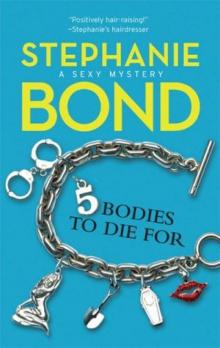 5 Bodies to Die For
5 Bodies to Die For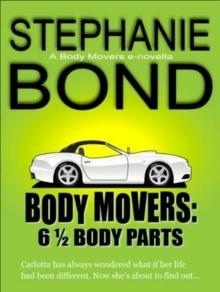 6 1/2 Body Parts
6 1/2 Body Parts Got Your Number ((a humorous romantic mystery))
Got Your Number ((a humorous romantic mystery)) Baby, Hold On
Baby, Hold On I Think I Love You
I Think I Love You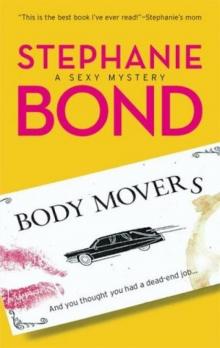 Body Movers
Body Movers Our Husband
Our Husband Once Upon a Valentine
Once Upon a Valentine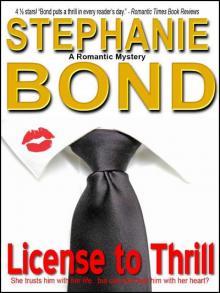 License to Thrill (a romantic mystery)
License to Thrill (a romantic mystery)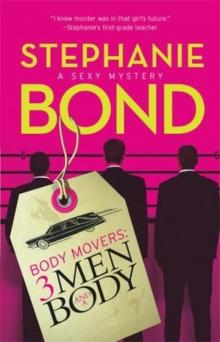 3 Men and a Body
3 Men and a Body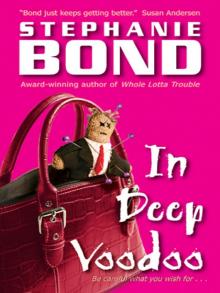 In Deep Voodoo
In Deep Voodoo Entice Me Box Set: The Truth About Shoes and MenCover MeMy Favorite Mistake
Entice Me Box Set: The Truth About Shoes and MenCover MeMy Favorite Mistake Got Your Number
Got Your Number Baby, Don't Go
Baby, Don't Go Sand, Sun...Seduction!
Sand, Sun...Seduction! Wife Is A 4-Letter Word
Wife Is A 4-Letter Word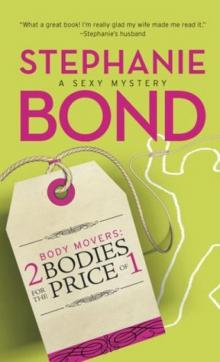 2 Bodies for the Price of 1
2 Bodies for the Price of 1 Baby, Drive South
Baby, Drive South My Favorite Mistake
My Favorite Mistake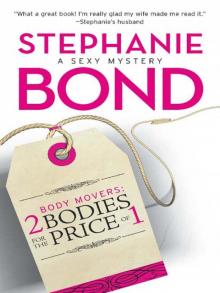 Body Movers: 2 Bodies for the Price of 1
Body Movers: 2 Bodies for the Price of 1 Coma Girl: part 1
Coma Girl: part 1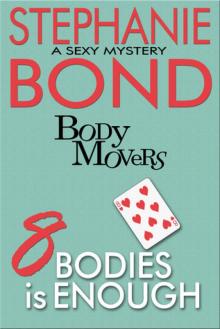 8 Bodies Is Enough
8 Bodies Is Enough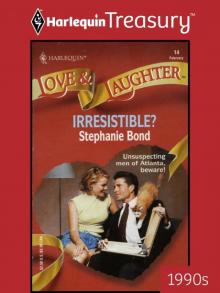 Irresistible?
Irresistible? Too hot to sleep
Too hot to sleep Two Sexy!
Two Sexy! Manhunting in Mississippi
Manhunting in Mississippi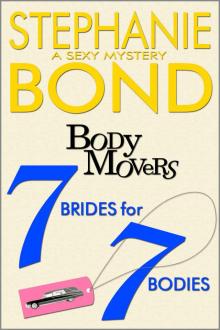 7 Brides for 7 Bodies
7 Brides for 7 Bodies Coma Girl: Part 6 (Kindle Single)
Coma Girl: Part 6 (Kindle Single)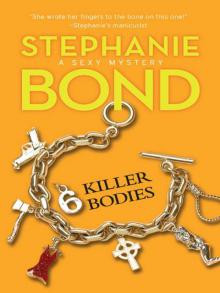 6 Killer Bodies
6 Killer Bodies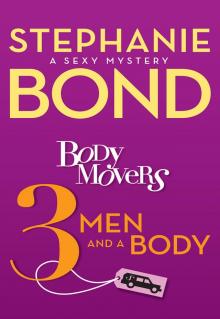 Body Movers: 3 Men and a Body
Body Movers: 3 Men and a Body Seeking Single Male
Seeking Single Male Love So Tender: Taking Care of BusinessPlay It Again, ElvisGood Luck Charm
Love So Tender: Taking Care of BusinessPlay It Again, ElvisGood Luck Charm Love Can Be Murder (boxed set of humorous mysteries)
Love Can Be Murder (boxed set of humorous mysteries)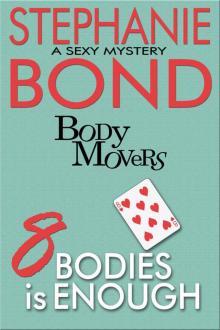 8 Bodies is Enough--for Amazon
8 Bodies is Enough--for Amazon Her Sexy Valentine
Her Sexy Valentine Baby, I'm Back (a Southern Roads short story)
Baby, I'm Back (a Southern Roads short story) Stop the Wedding!
Stop the Wedding! Too Hot to Print
Too Hot to Print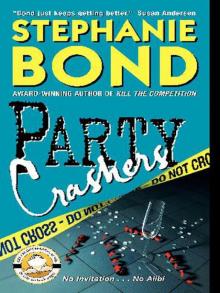 Party Crashers
Party Crashers Club Cupid
Club Cupid Coma Girl: Part 4 (Kindle Single)
Coma Girl: Part 4 (Kindle Single)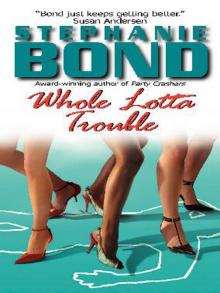 Whole Lotta Trouble
Whole Lotta Trouble Almost a Family
Almost a Family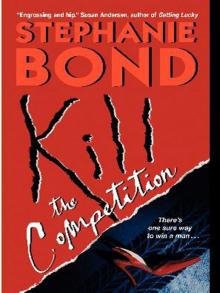 Kill the Competition
Kill the Competition Kids Is A 4-Letter Word
Kids Is A 4-Letter Word Baby, Come Home
Baby, Come Home Voodoo or Die
Voodoo or Die Baby, I’m Yours
Baby, I’m Yours Mad About You (boxed set of beloved romances)
Mad About You (boxed set of beloved romances) You Can Leave Your Hard Hat On
You Can Leave Your Hard Hat On ABOUT LAST NIGHT
ABOUT LAST NIGHT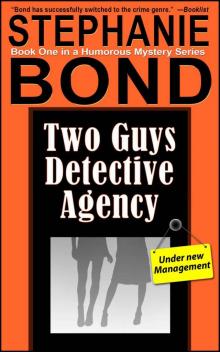 Two Guys Detective Agency (humorous mystery series--book 1)
Two Guys Detective Agency (humorous mystery series--book 1)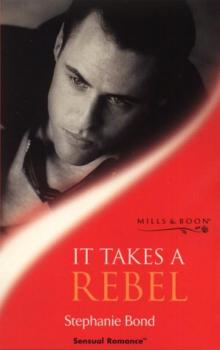 IT TAKES A REBEL
IT TAKES A REBEL Coma Girl: part 3 (Kindle Single)
Coma Girl: part 3 (Kindle Single)